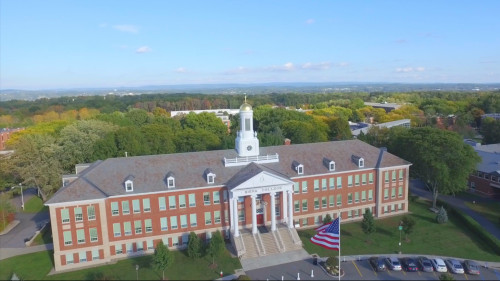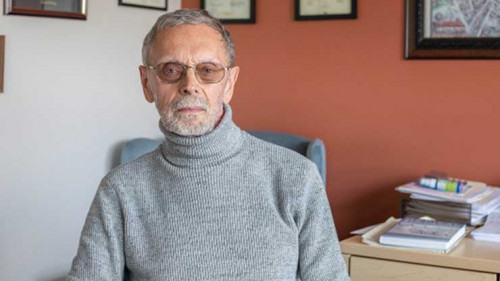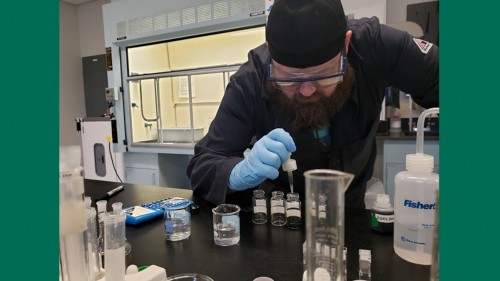
What happens to people when they are evicted from their homes? How does the eviction process work, and how does it impact families, communities and the overall social fabric?
To explore these questions from a sociological perspective, Suvarna Cherukuri, Ph.D., professor of sociology, developed an introductory seminar specifically on eviction and its impact. Their class studies last fall culminated in a series of observational visits to Town of Colonie eviction court to see process firsthand.
“It’s one thing to read about sociology in a book,” said Cherukuri. “When you see it action it suddenly goes beyond statistics and becomes so real.”
Before heading to court, the class learned about the foundational theories, concepts and methodologies of sociology. They read Matthew Desmond’s Pulitzer Prize-winning book The Evicted: Poverty and Profit in the American City, examined the legal process of eviction, and familiarized themselves with landlord-tenant vocabulary such as warrants, money judgment, default, and order to show cause.
“The class gave us a really exciting opportunity to go beyond traditional learning and actively see how evictions impact families, both in the Albany community and across the country,” said Grace Dobrzynski ’25. “Studying eviction is certainly not glamorous work; facing reality was often shocking and frustrating for me. But I left the class feeling a much greater appreciation for the importance of raising awareness of the issue and calling for policy reform.”
Each student was asked to take notes during court sessions: was an attorney present for both tenant and landlord? How many questions were asked by the judge and of whom? What were the age, race, gender and ethnicity of those being evicted? Were they disabled? Was there any mention of rental assistance or other tenant resources?
Alice Westad ’26 said the most important thing she learned in this class was perspective.
“It’s easy to pass some unconscious bias on the people in terms of them not prioritizing their money towards paying rent or making poor choices in their personal lives that led them to being in unstable housing,” Westad explained. “But when we went to Colonie court and witnessed evictions first hand, there was no room for bias as I witnessed the system fail each person who was evicted. I think the perspective that I gained will help me be a more sympathetic person as I continue through life and into the work force.”
In a series of Thursday morning sessions last fall, groups of five Siena students took turns observing court proceedings. They saw tenants unrepresented by attorneys attempt to plead their case without legal knowledge, while landlords who did not show up in court were represented by established lawyers who made short work of the eviction cases. While one group was in court, the others also spoke to struggling tenants who called an eviction hotline run by United Tenants of Albany to seek help. Many of them were women or mothers who had left a bad living situation, or people unable to earn money due to disability.
Thanks to the class, Anna Nguyen ’25 now plans to add a sociology minor to her biology major.
“This introductory sociology project interested me to pursue a more well-rounded education as I learned how society determinants can influence many aspects of life like health and financial stability,” she said.
Cherukuri extends her gratitude to Sarah Toledano, associate director of the Center for Academic Community Engagement; Bonner service leaders Brianna Rodriquez ’24 and Rachel Gifford '24; and Canyon Ryan, CEO of United Tenants of Albany.

